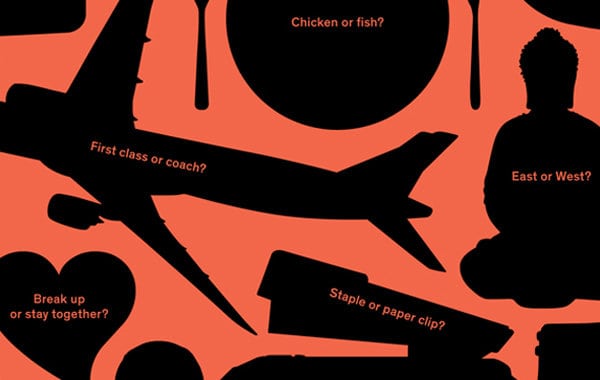The Cost of Making too Many Decisions

Have you noticed the end of the day is when you are more likely to make the impulsive online purchase, send the angry text, or stop by the fast-food restaurant on your way home? It could be that you are experiencing decision fatigue.
Our ability to make good decisions is directly impacted by the number of decisions we are required to make on a given day. In other words, our mental resources are limited, so when they are depleted, our self-control is low, and we are more likely to say “I don’t care” or “just give me whatever.”
A 2011 NY Times magazine article cited a report from Shai Danziger and Liora Avnaim-Pesso of Ben Gurion University and Johnathan Levav of Columbia University. The researchers looked at more than 1,100 parole hearing decisions made by judges in the US to learn what factors influence the probability of a prisoner being granted parole.
You might expect the most influential factor in whether or not someone was granted parole would be their crime, background, or time served. This was not the case however; the study revealed that the time of day a case was heard was the biggest factor in determining parole.
“Prisoners who appeared early in the morning received parole about 70 percent of the time, while those who appeared late in the day were paroled less than 10 percent of the time.” The judges, in determining the prisoner’s fate, were experiencing an occupational hazard of making multiple decisions throughout the day. This mental work resulted in decision fatigue.
Decision fatigue is nondiscriminating. It doesn’t matter how smart you are, how rich you are, or the amount of training of preparation you have. If you are required to make decision after decision you will pay a mental price.
Unlike physical fatigue, there is no warning sign that you are experiencing decision fatigue. When you are mentally drained, you will begin to look for shortcuts to reduce the amount of mental energy needed to think through possibilities.
One is to act impulsively and the other is to avoid making a decision. Both provide short term relief, but typically long-term consequences.
Now that you are aware of decision fatigue, here are some suggestions for ways you can set yourself up for making the best decisions in the future:
-
Structure your day so important decisions can be made in the morning when your mental resources are greatest.
-
Be proactive. Have a routine for everyday decisions such as meal planning, attending the same workout classes, or wearing a work “uniform” means there are fewer choices to make each day.
-
Take breaks. Sometimes just walking away from your task for a 15-minute break to change perspective can make a difference.
-
Eat when you are hungry. It should go without saying, but unfortunately, it needs to be said. I’m surprised at the number of clients who say they work through lunch. The truth is they are fooling themselves into thinking they are more productive.
-
Avoid making decisions when you are distracted. If your mind is focused on social media, a social event, or simply your family chaos at the end of the day, you won’t have full mental capacity.
- Enlist the help of a trusted friend or colleague to help make your decision.

Ann Sheerin
MA LPC
Learn more about Ann →
Originally posted on Grow Counseling